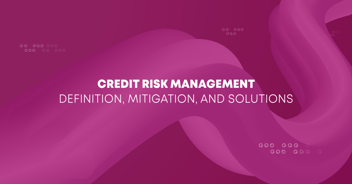Building Successful Collections Teams: Strategies for Recruitment and Growth
QUALCO |
By George Fertakis, Senior Business Consultant at QUALCO.
In our recent study on the collections sector conducted in partnership with Deloitte France, difficulty in finding the right staff emerged as a key challenge for respondents, both among those managing Banks’ collections departments and those overseeing servicing operations.
This seems to be a recurring theme. A speaker at a recent collections conference stated that, traditionally, banks staffed their collections departments with people lacking talent at selling. He literally spoke about “frustrated salespeople” and this appeared to resonate with most of the audience.
At a time when digitalisation has automated multiple tasks in collections, many are wondering why hiring, retaining, and developing the right people should be a key concern.
Indeed, many routine tasks are automated and handled by bots these days. There is no need for human resources to be involved in simple payment plan extension agreements with a well-intended debtor when this can be done through a portal or an application. However, neither are all debtors well-intended, nor are all well-intended debtors convinced by the automated solutions offered. In these cases, there is no substitute for human interaction, negotiation and guiding to a mutually beneficial agreement through rational arguments.
Gaining trust is also a key factor in reaching such an agreement. Debtors who are serious about protecting their real estate assets or a small business need to feel they are dealing with a real person, capable of displaying empathy while offering options based on professional expertise. Therefore, the need to recruit the right people for collections teams is real and seems largely unmet. This is quite surprising given the importance of collections operations for lenders, even more so for servicers, with collections being their core business.
Meanwhile, compared to other functions in Banking and Financing, collections never seem to be the first career choice for young graduates. There are no dedicated university courses to prepare someone for employment in collections, nor are professional certifications offered, as is the case in fields such as financial analysis, audit, etc.
COLLECTIONS OFTEN INVOLVE HAVING “DIFFICULT” CONVERSATIONS THAT MOST PEOPLE ARE AVERSE TO.
Still, Collections is a very thorough activity that offers younger professionals an immersion in several essential aspects of banking. At the same time, they require a wide array of both hard and soft skills:
- Finance: An understanding, from basic to more advanced, is requisite to be able to understand concepts ranging from interest, loan duration and amortisation tables, being able to read financial statements and calculate ratios and KPIs.
- Lending: To manage banking portfolios, one must understand good lending practices and the regulatory framework that governs them. This allows them to assess early on when handling a case if a loan was excessively risky from the outset, if regulatory guidelines had not been respected, or if there is suspicion of fraud.
- Basic legal concepts and principles: It is essential for anyone working in collections to understand the basic concepts used in legal stages. Understanding concepts like legal notices, lawsuits, executable orders, foreclosure and auction is necessary for those working in the legal stages of collections. This is equally critical for those working in the early pre-legal stages, as it enables them to assess if they “have a strong hand” in case they pursue their claims through the court system or if it would be preferable to seek a negotiated settlement.
- Negotiation: This is a key skill for anyone in a customer-facing role. To succeed in collections, professionals should be trained in negotiations and understand the basic concepts of negotiation theory. They must learn how to distinguish the people involved from the issues at hand, correctly identify the interests at stake (obvious and hidden), and have the right mix of empathy and assertiveness. Some people naturally possess these soft skills while others struggle to apply in practice even after being trained. After training, it is important to identify those who naturally own these skills and assign them to customer-facing roles.
- Selling skills/Objections Handling: A collections person engaging with debtors through repeated contacts (such as a Relationship Manager or anyone managing cases personally assigned to them) should be able to “sell” solutions, gain the trust of debtors and convince them to “buy” the solution suggested as the best possible option.
WHAT TO CONSIDER WHEN PUTTING TOGETHER AN EFFECTIVE COLLECTIONS TEAM
An effective collections team benefits from including members from diverse backgrounds and experiences. However, these people may not necessarily possess all of the required skills described above or not possess them all at the desired level. Therefore, ongoing development and training are needed. The case we are making in this paper is that conventional thinking dictating that anyone with banking/financing experience should be preferred for collections over candidates from other fields is flawed and tends to limit the collections teams’ capabilities.
A capable salesperson can become a more effective collections person with some reasonable effort and training compared to a bank employee who knows well the technical aspects of loan granting, amortisation and restructuring but is an introvert and finds it challenging to engage in conversations that require assertiveness with debtors. Similarly, a person who is very knowledgeable about the legal aspects of collections can better assess the effort required to collect through litigation and the probabilities of success against the cost required to do so. Therefore, they may be better positioned to determine whether an out-of-court solution is the more profitable (or less financially damaging) alternative and must be pursued as a priority.
Therefore, recruitment for roles in collections should:
- Create diverse teams by selecting people with transferrable skills from non-financial sectors.
- Encourage the sharing of experience among team members.
- Understand that mindset and adaptability are more important than potential skill gaps that can be addressed through training and experience.
- Offer the right incentives to attract and retain employees, making collections an esteemed and sought-after field of employment rather than merely a fallback option.
- Provide employees with clear career development paths and opportunities while ensuring succession planning within collections.
HOW QUALCO CAN HELP
QUALCO has vast expertise in collections, acquired over 25 years as a solutions provider to the collections industry to more than 90 clients in over 35 countries. We have a team of experienced business consultants coming from the Banking/Collections industry who are ready to advise on optimising the collections practices of institutions that manage and/or service debt.
Our consultants can advise on setting up collections teams and provide fast-track training to collections team members on all aspects of collections, share best practices on payment plans, and restructuring solutions, negotiation, selling skills, and optimal use of technology. Moreover, QUALCO’s solutions offer a streamlined approach to collections, automating tasks and sophisticated processes such as legal actions, increasing the productivity of less experienced collections staff, and enabling quicker on-the-job training.
Our analytics solution, QUALCO Data-Driven Decisions Engine (D3E), allows for granular segmentation of debt portfolios and can match cases to the staff best qualified to handle them. For instance, a mortgage involving litigation over the collateral can be assigned to a team member who has experience in mortgages and especially complicated cases. In contrast, a small business loan with several parties involved can be assigned to a team member with experience in handling such cases and talking to multiple stakeholders. Meanwhile, more straightforward cases can be routed through automated channels or delegated to team members with less experience.



